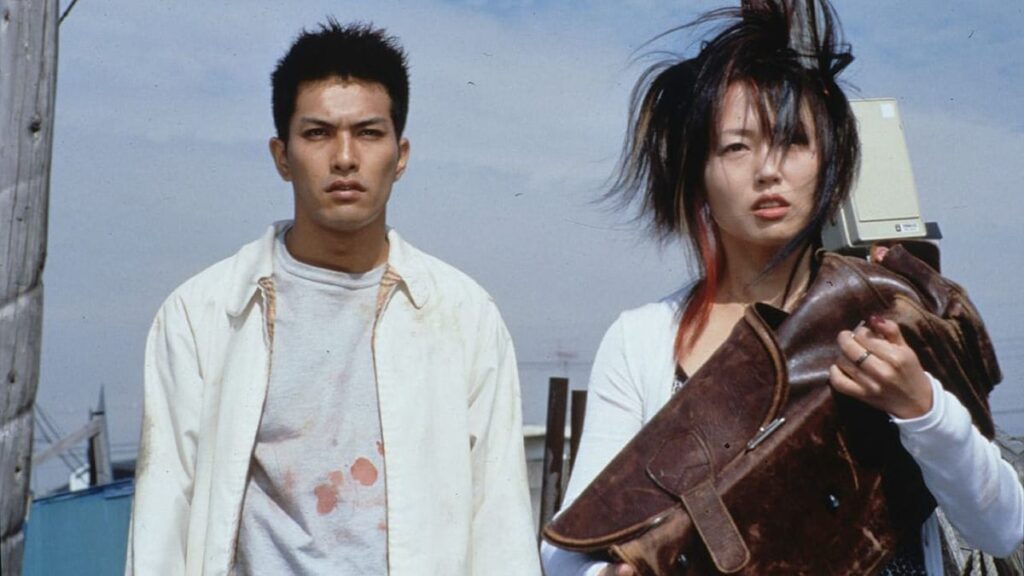
Few filmmakers are even half as prolific as Takashi Miike. For that reason alone you have to respect him as a filmmaker. Miike has tried his hand at every genre, often with unique or interesting results. His best known works, The Audition (1999), Visitor Q (2001), The Happiness Of The Katakuris (2001) and Dead Or Alive (1999), were all made relatively early in his career. I remember reading an article in Sight And Sound from 2000 that was written in a highly congratulatory style announcing Miike’s meteoric rise in the world of international filmmaking. Ley Lines (1999) is my favorite of Miike’s films and I think his best of this period. It’s the third film in Miike’s Black Society Trilogy, following Rainy Dog (1997) and Shinjuku Triad Society (1995).
The Black Society Trilogy is a series of films that investigate, through the lens of different crime film sub genres, the issues of systemic racism and classism in Japanese society. Ley Lines functions almost as a kind of “road movie” or “lovers on the run” film. It follows three Chinese friends from the countryside into Tokyo where they are forced, due to circumstances out of their control, into lives of petty crime in order to break free of Japanese society and relocate to South America. The themes of systemic oppression that unite each installment in the Black Society Trilogy are on display here in their most melodramatic. Rainy Dog and Shinjuku Triad Society have a kineticism to their pacing of montage and trade is easily recognizable signifiers and character types. Ley Lines privileges a more nuanced characterization that allows for greater dimension, particularly with regards to the character Anita (Dan Li).
Miike’s reputation is for shock tactics, but there isn’t much of that in Ley Lines. There is something somber to this film. The long shots of rain falling on tin roofs that punctuate the calm before the storm of gunfire in Rainy Dog seemed to have metamorphosed into the dominant cinematographic expression in that film’s follow-up. Here Miike is about the visceral living with his spectators in long takes and wide shots. Ley Lines is so much about environment that I don’t think the film would work if Miike had taken the same approach as he had in Shinjuku Triad Society.
For a long time the best way to see the Black Society Trilogy was on the Arts Magic three disc DVD from 2004; that was the version I bought in high school anyway. Since then Arrow Video has released all three films together on two blu ray discs. It goes without saying that the image and sound have much improved in Arrow Video’s capable hands.
